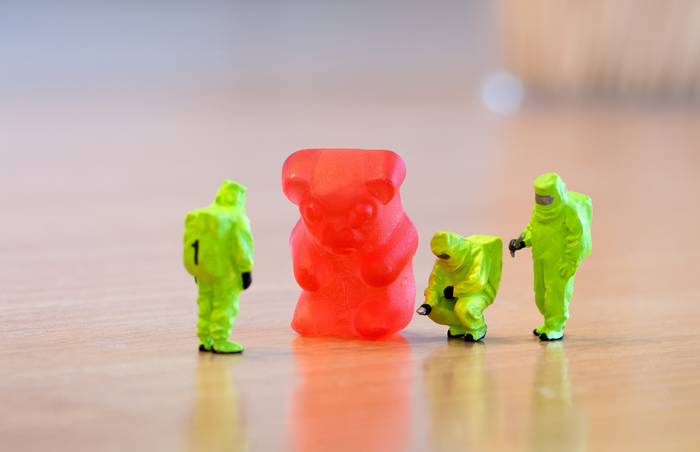Once that was known, changes were made and the results were seen within a generation, but different countries took different approaches. America switched to a lot of sugar-free alternatives in daily products like chewing gum, while Sweden created Lördagsgodis culture, which is a pretty terrific communal event. Eat all the candy you want - but only on Saturdays.
That doesn't mean the world got smarter. When I was young, adults believed in crystals, ghosts, that a 1/3-lb. burger was a worse value than a 1/4-lb. burger at the same price, and that banana peels contained a psychoactive substance named bananadine.
That may be why there are persistent myths around Halloween, and not just stuff like razor blades in food or kids are being run over by cars en masse, but things a science literate society really should know.

Image: Storyblocks
Fact: You don't need to floss; if you have regular dentist visits. Most people do not have regular dentist visits so flossing will help. If you do floss, you're probably doing it in the wrong order. Most people brush, then floss, but do it the other way around. There are a few reasons but the biggest impact is how much fluoride reaches the teeth during brushing because flossing has paved the road. Fluoride replaces lost minerals and strengthens teeth. Unless you are in the demographic that thinks cell phones cause brain cancer and bees are dying, you probably recognize after 70 years of safe use that fluoride helps a lot.
Myth: Pregnant woman shouldn't use toothpaste. Like most epidemiology claims, basically all of them except inhaling plutonium, cigarettes, and alcohol, pregnant women and toothpaste is based on slipshod correlation and promoted by companies hawking "alternatives." In a best case scenario, you get terrible-tasting "natural" toothpaste that does a poor job. In the worst case scenario, you read something saying to use baking soda, which if overdone causes more problems than benefits.
Fact: Chewing gum promotes oral health. For a market that very much distances itself from any health claims, there is a lot of health data available thanks to triangulation. Lots of other studies for lots of other maladies that included gum as an input converged on its positive health aspects. Chewing gum produces more saliva and helps neutralize the destructive acids that promote demineralization of teeth.

Image: Storyblocks
Myth: Food fad mumbo-jumbo, like probiotics for teeth. Sure, buy yogurt that makes you poop if you have the means, but Bifidobacterium or lactobacillus claims are no more valid than epidemiological claims that horse dewormer can cure COVID-19 or that glyphosate can cause cancer. You have to be San Francisco jury dumb to believe it. If you have money and acceptance of "truthiness" verbiage like "research suggests" you may want to spend, but it isn't doing anything. "Suggests" just means someone looked at rows of benefits or harms and columns of food or chemicals and made a link between the two. "Correlation is not causation" seems obvious, but a $125 billion organic food industry plus another $30 billion in alternatives-to-medicine means a lot of people will believe anything if a marketing depart "suggests" is is science and not just epidemiology.




Comments